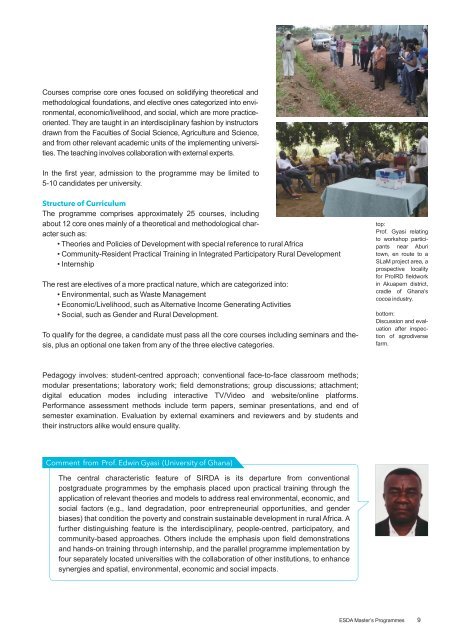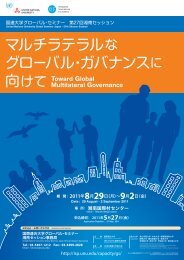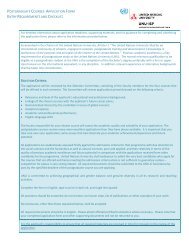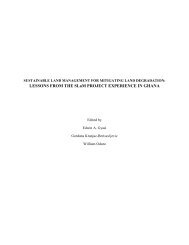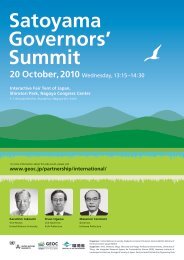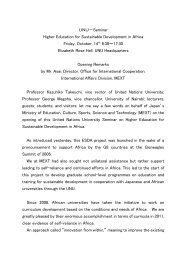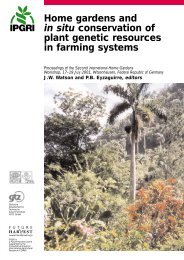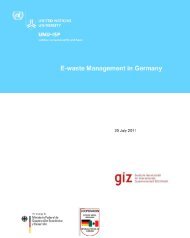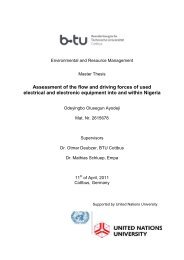ESDA Master's Programmes - UNU-ISP - United Nations University
ESDA Master's Programmes - UNU-ISP - United Nations University
ESDA Master's Programmes - UNU-ISP - United Nations University
- No tags were found...
Create successful ePaper yourself
Turn your PDF publications into a flip-book with our unique Google optimized e-Paper software.
Courses comprise core ones focused on solidifying theoretical andmethodological foundations, and elective ones categorized into environmental,economic/livelihood, and social, which are more practiceoriented.They are taught in an interdisciplinary fashion by instructorsdrawn from the Faculties of Social Science, Agriculture and Science,and from other relevant academic units of the implementing universities.The teaching involves collaboration with external experts.In the first year, admission to the programme may be limited to5-10 candidates per university.Structure of CurriculumThe programme comprises approximately 25 courses, includingabout 12 core ones mainly of a theoretical and methodological charactersuch as:• Theories and Policies of Development with special reference to rural Africa• Community-Resident Practical Training in Integrated Participatory Rural Development• InternshipThe rest are electives of a more practical nature, which are categorized into:• Environmental, such as Waste Management• Economic/Livelihood, such as Alternative Income Generating Activities• Social, such as Gender and Rural Development.To qualify for the degree, a candidate must pass all the core courses including seminars and thesis,plus an optional one taken from any of the three elective categories.top:Prof. Gyasi relatingto workshop participantsnear Aburitown, en route to aSLaM project area, aprospective localityfor ProIRD fieldworkin Akuapem district,cradle of Ghana’scocoa industry.bottom:Discussion and evaluationafter inspectionof agrodiversefarm.Pedagogy involves: student-centred approach; conventional face-to-face classroom methods;modular presentations; laboratory work; field demonstrations; group discussions; attachment;digital education modes including interactive TV/Video and website/online platforms.Performance assessment methods include term papers, seminar presentations, and end ofsemester examination. Evaluation by external examiners and reviewers and by students andtheir instructors alike would ensure quality.Comment from Prof. Edwin Gyasi (<strong>University</strong> of Ghana)The central characteristic feature of SIRDA is its departure from conventionalpostgraduate programmes by the emphasis placed upon practical training through theapplication of relevant theories and models to address real environmental, economic, andsocial factors (e.g., land degradation, poor entrepreneurial opportunities, and genderbiases) that condition the poverty and constrain sustainable development in rural Africa. Afurther distinguishing feature is the interdisciplinary, people-centred, participatory, andcommunity-based approaches. Others include the emphasis upon field demonstrationsand hands-on training through internship, and the parallel programme implementation byfour separately located universities with the collaboration of other institutions, to enhancesynergies and spatial, environmental, economic and social impacts.<strong>ESDA</strong> Master’s <strong>Programmes</strong>9


